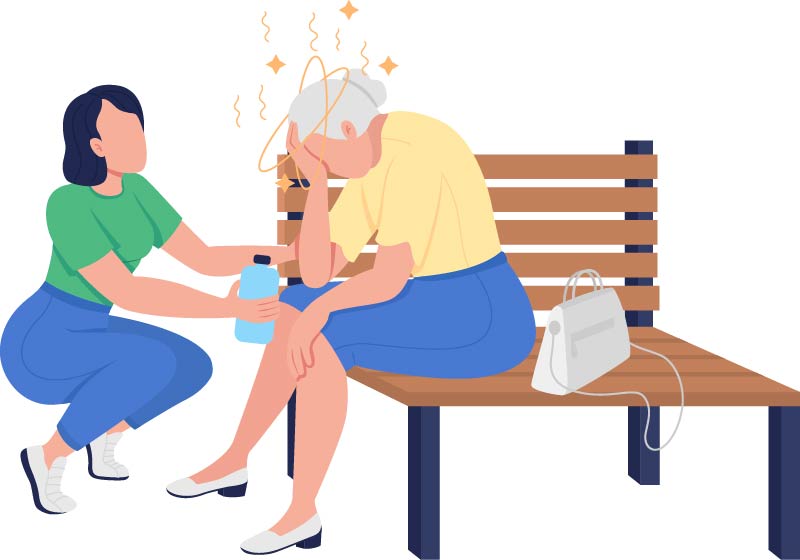"When heat soars, safety adores.”
Guarding Against Extreme Heat Risks
Extreme heat can pose serious health risks, especially to older adults. Heat-related illnesses like heat exhaustion or heatstroke can occur rapidly in hot weather, potentially leading to severe health complications or even death. It's crucial for caregivers to be proactive in managing and preventing heat-related issues.
Emergency Preparedness Tips for Extreme Heat:
- Stay Hydrated:
- Encourage older adults to drink plenty of water, even if they're not thirsty. Avoid caffeinated or alcoholic beverages as they can lead to dehydration.
- Stay Cool:
- Ensure the home environment is kept cool with fans, air conditioning, or by using cool, damp towels or cloths on the skin to help reduce body temperature.
- Limit Outdoor Activity:
- Encourage staying indoors during the hottest parts of the day (usually from late morning to early evening). If outdoor activity is necessary, advise doing it during cooler times, like early morning or late evening.
- Dress Appropriately:
- Wear lightweight, loose-fitting, and light-colored clothing to help stay cool. A wide-brimmed hat and sunglasses can also provide additional protection from the sun.
- Cool Baths or Showers:
- Suggest taking cool baths or showers to help lower body temperature.
- Use Cooling Devices:
- Provide handheld fans, cooling scarves, or cooling vests to help maintain a cooler body temperature.
- Check-In Regularly:
- Check on older adults frequently, especially those living alone, to ensure they are managing the heat and staying hydrated.
- Identify Cooling Centers:
- Know the locations of nearby cooling centers or public places like libraries or shopping malls that have air conditioning, and encourage visits during extreme heat if necessary.
- Medical Alert:
- If an older adult has medical conditions or medications that can affect heat tolerance, consult their healthcare provider for specific advice during extreme heat.
- Create an Emergency Plan:
- Establish an emergency plan in case of power outages or extreme heat events, including a list of emergency contacts, nearby cooling centers, and essential items in an emergency kit.

